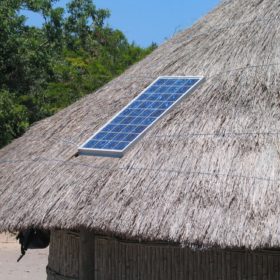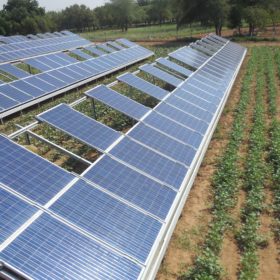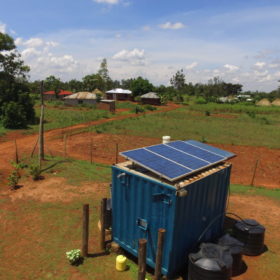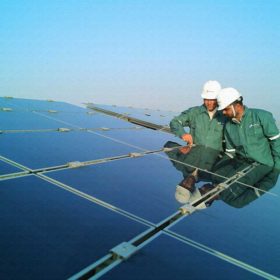Off-grid solar sector witnesses sales of 4.1 million products in six months
Industry body Gogla and the World Bank’s Lighting Global program said the last six months set a record for off-grid solar deployment. Solar home systems and other small off-grid appliances are being used in ever larger numbers.
Rajasthan tenders for 61 solar operated water pumping systems
The selected bidders are required to install and commission solar-based water pumping systems in various villages and towns of Jaipur district. Bidding closes on November 5.
CEL tenders off-grid solar in 4 states
The hybrid solar plants (with battery bank) shall come up at 34 railway station sites in the 4 states of Uttar Pradesh, Rajasthan, Assam and Bihar. Bidding closes on October 30.
Assam tenders for installation of solar powered tube wells
A total of 476 tube wells are to be installed under four packages in districts under different divisions—Barpeta (100+80), Goalpara, Dhubri and Mankachar (151), and Kokrajhar (145). Bidding closes on November 1.
CSIR-CMERI develops solar artifacts
The aesthetically appealing 1 KWp, 3 KWp and 5 KWp artifacts can be installed at public places like beaches and parks to provide electrical power for different loads.
SECI tenders 500 quantities of solar cooking systems
Bids are invited for design, supply, installation and commissioning of solar home cooking systems in five districts of different states (Meghalaya, Chhattisharh, Jharkhand, Uttar Pradesh and Gujarat). Bidding closes on November 8.
Jodhpur agrivoltaic pilot project replicated
Research institutes have moved quickly to emulate the successes observed in a test installation at Jodhpur as India races to meet an ambitious target of doubling agricultural income by 2022.
India prepares to embrace agrivoltaics
Take-up has been slow considering the nation’s mammoth agricultural industry but, as a packed session on the topic at the recent REI show illustrated, attitudes may be changing in a nation which is already installing solar greenhouses.
Four off-grid clean energy projects chosen for India-US joint funding
A total of 168 expressions of interest were received by the Ministry of New and Renewable Energy in the second round of PACEsetter Fund programme. Out of these, projects by the Society for Economic and Social Studies, Customized Energy Solutions India, The Energy & Resources Institute and Raghavendra Suntech Systems were chosen for the award of grants.
Uttarakhand invites EoI for off-grid solar plus battery projects
The projects—in various capacities ranging between 1 KWp and 25 KWp—are to be set up across the state. Proposals can be submitted till October 4.












